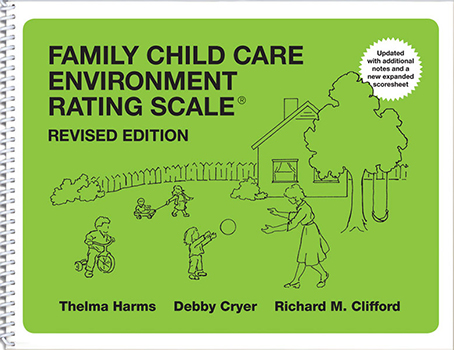
The process of revision drew on four main sources of information: (1) research on development in the early and school years and findings related to the impact of child care environments on children’s health and development; (2) a content comparison of the original FDCRS with other assessment instruments designed for similar age groups and settings, and additional documents describing aspects of family child care program quality; (3) feedback from FDCRS users, solicited through a questionnaire that was circulated and also put on our website as well as suggestions given to us as we talked with the many people who use the FDCRS; and (4) intensive use over the years, and across states and countries, by the FCCERS-R™ co-authors and their team of associates at the Frank Porter Graham Child development Institute, University of North Carolina at Chapel Hill.
The data from studies of family child care program quality using the FDCRS gave us information about the range of scores on various items, the relative difficulty of items, and their validity. The content comparison helped us to identify items to consider for addition or deletion. By far the most helpful guidance for the revision was the feedback from direct use in the field. Colleagues from the US, Canada, and Europe who had used the FDCRS in research, monitoring, and program improvement gave us valuable suggestions based on their experience with the scale. Using input from focus groups that were convened during the revisions of the ECERS and ITERS, we were able to consider what was needed to make the revised FCCERS-R™ more sensitive to issues of inclusion and diversity.
